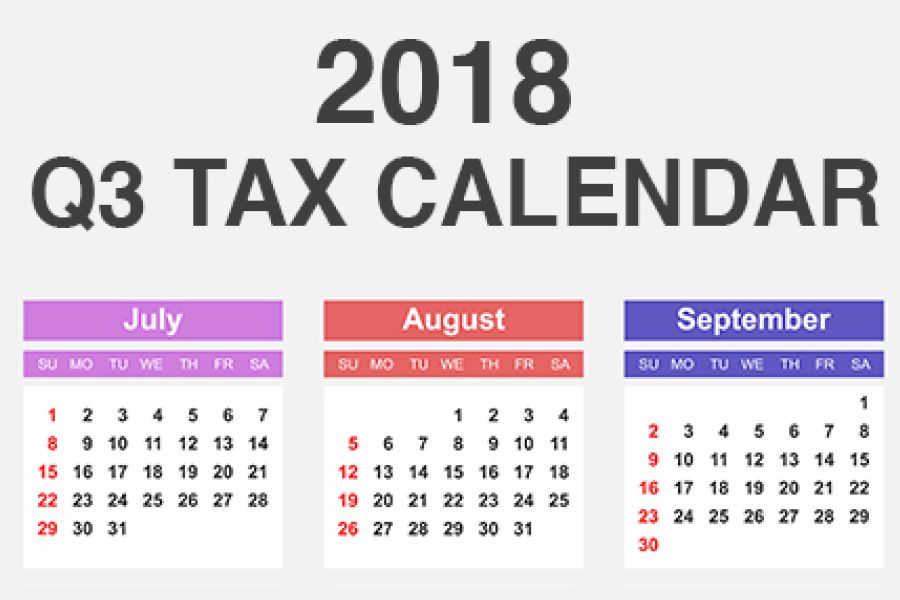You’ve probably heard about the recent U.S. Supreme Court decision allowing state and local governments to impose sales taxes on more out-of-state online sales. The ruling in South Dakota v. Wayfair, Inc. is welcome news for brick-and-mortar retailers, who felt previous rulings gave an unfair advantage to their online competitors. And state and local governments are pleased to potentially be able to collect more sales tax. But for businesses with out-of-state online sales that haven’t had to collect sales tax from out-of-state customers in the past, the decision brings many questions and concerns. What the requirements used to be Even before Wayfair, a state could require an out-of-state business to collect sales tax from its residents on online sales if the business had a “substantial nexus” —...

As posted on the Peak Prosperity.com and the Chris Martenson's Peak Prosperity YouTube Channel Background The Crash Course has provided millions of viewers with the context for the massive changes now underway, as economic growth as we've known it is ending due to depleting resources. But it also offers real hope. Those individuals who take informed action today, while we still have time, can lower their exposure to these coming trends -- and even discover a better way of life in the process. In this Blog, I am presenting the 27 (inclusive of the introduction) installments of The Crash Course, one per week. Previous installments of "The Crash Course" can be found here: Blog (#311) Introducing "The Crash Course" Blog (#314) Chapter 1: Three Beliefs Blog (#319) Chapter 2: "The Three 'Es'" Blog...
For tax years beginning in 2018 and beyond, the Tax Cuts and Jobs Act (TCJA) created a flat 21% federal income tax rate for C corporations. Under prior law, C corporations were taxed at rates as high as 35%. The TCJA also reduced individual income tax rates, which apply to sole proprietorships and pass-through entities, including partnerships, S corporations, and, typically, limited liability companies (LLCs). The top rate, however, dropped only slightly, from 39.6% to 37%. On the surface, that may make choosing C corporation structure seem like a no-brainer. But there are many other considerations involved. Conventional wisdom Under prior tax law, conventional wisdom was that most small businesses should be set up as sole proprietorships or pass-through entities to avoid the double taxation of C corporations:...
While the Tax Cuts and Jobs Act (TCJA) reduced most ordinary-income tax rates for individuals, it didn’t change long-term capital gains rates. They remain at 0%, 15% and 20%. The 0% rate generally applies to taxpayers in the bottom two ordinary-income tax brackets (now 10% and 12%), but you no longer have to be in the top ordinary-income tax bracket (now 37%) to be subject to the top long-term capital gains rate of 20%. Many taxpayers in the 35% tax bracket also will be subject to the 20% rate. So finding ways to defer or minimize taxes on investments is still important. One way to do that — and diversify your portfolio, too — is to invest in qualified small business (QSB) stock. QSB defined To be a QSB,...
Here are some of the key tax-related deadlines affecting businesses and other employers during the second quarter of 2018. Keep in mind that this list isn’t all-inclusive, so there may be additional deadlines that apply to you. Contact me to ensure you’re meeting all applicable deadlines and to learn more about the filing requirements. July 31 Report income tax withholding and FICA taxes for second quarter 2018 (Form 941), and pay any tax due. (See the exception below, under “August 10.”) File a 2017 calendar-year retirement plan report (Form 5500 or Form 5500-EZ) or request an extension. August 10 Report income tax withholding and FICA taxes for second quarter 2018 (Form 941), if you deposited on time and in full all of the associated taxes due. September...
As posted on the Peak Prosperity.com and the Chris Martenson's Peak Prosperity YouTube Channel Background The Crash Course has provided millions of viewers with the context for the massive changes now underway, as economic growth as we've known it is ending due to depleting resources. But it also offers real hope. Those individuals who take informed action today, while we still have time, can lower their exposure to these coming trends -- and even discover a better way of life in the process. In this Blog, I am presenting the 27 (inclusive of the introduction) installments of The Crash Course, one per week. Previous installments of "The Crash Course" can be found here: Blog (#311) Introducing "The Crash Course" Blog (#314) Chapter 1: Three Beliefs Blog (#319) Chapter 2: "The Three 'Es'" Blog...
The massive changes the Tax Cuts and Jobs Act (TCJA) made to income taxes have garnered the most attention. But the new law also made major changes to gift and estate taxes. While the TCJA didn’t repeal these taxes, it did significantly reduce the number of taxpayers who’ll be subject to them, at least for the next several years. Nevertheless, factoring taxes into your estate planning is still important. Exemption increases The TCJA more than doubles the combined gift and estate tax exemption and the generation-skipping transfer (GST) tax exemption, from $5.49 million for 2017 to $11.18 million for 2018. This amount will continue to be annually adjusted for inflation through 2025. Absent further congressional action, however, the exemptions will revert to their 2017 levels (adjusted for inflation)...
When you think about recent tax law changes and your business, you’re probably thinking about the new 20% pass-through deduction for qualified business income or the enhancements to depreciation-related breaks. Or you may be contemplating the reduction or elimination of certain business expense deductions. But there are also a couple of recent tax law changes that you need to be aware of if your business sponsors a 401(k) plan. 1. Plan loan repayment extension The Tax Cuts and Jobs Act (TCJA) gives a break to 401(k) plan participants with outstanding loan balances when they leave their employers. While plan sponsors aren’t required to allow loans, many do. Before 2018, if an employee with an outstanding plan loan left the company sponsoring the plan, he or she would...
- 1
- 2
- 3
- 4
- 5
- 6
- 7
- 8
- 9
- 10
- 11
- 12
- 13
- 14
- 15
- 16
- 17
- 18
- 19
- 20
- 21
- 22
- 23
- 24
- 25
- 26
- 27
- 28
- 29
- 30
- 31
- 32
- 33
- 34
- 35
- 36
- 37
- 38
- 39
- 40
- 41
- 42
- 43
- 44
- 45
- 46
- 47
- 48
- 49
- 50
- 51
- 52
- 53
- 54
- 55
- 56
- 57
- 58
- 59
- 60
- 61
- 62
- 63
- 64
- 65
- 66
- 67
- 68
- 69
- 70
- 71
- 72
- 73
- 74
- 75
- 76
- 77
- 78
- 79
- 80
- 81
- 82
- 83
- 84
- 85
- 86
- 87
- 88
- 89
- 90
- 91
- 92
- 93
- 94
- 95
- 96
- 97
- 98
- 99
- 100
- 101
- 102
- 103
- 104
- 105
- 106
- 107
- 108
- 109
- 110
- 111
- 112
- 113
- 114
- 115
- 116
- 117
- 118
- 119
- 120
- 121
- 122
- 123
- 124
- 125
- 126
- 127
- 128
- 129
- 130
- 131
- 132
- 133
- 134
- 135
- 136











